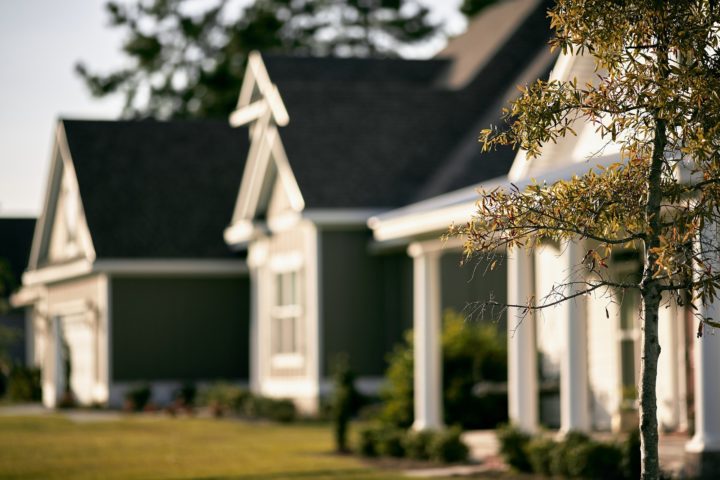The following contribution is from another author.
There are so many different aspects that go into choosing a property, it’s a wonder how anyone is able to sift through all the options and make a decision that they’ll need to live with for years to come. Unfortunately, many people don’t. Buyer’s remorse is a real thing, and it’s not enjoyable; it’s reserved for those people who have put a lot of time, effort, and, of course, money into buying a property, only to discover that they’ve made a mistake. Below, we take a look at a list of factors you’ll want to consider when looking for your property to ensure you don’t end up as one of the 45% of homeowners who regret their purchase, and get the home that’s right for you.
Set Your Budget
There are plenty of reasons why a person might regret buying their home, but the most common reason of all is money. Once the glamor of the new house has worn off, the financial obligation comes more into focus. If it suddenly looks insurmountable, then you’re going to live with a burden for more years than you’d care to think about. To avoid this unpleasant scenario, it’s imperative that you set a budget, and then stick to it. You might be tempted to stretch how much you were willing to pay if you believe you’ve found the perfect property, but remember: there is no such thing as the perfect property. Eventually, some time down the line, you’ll find yourself looking around and wondering if the additional monthly costs were worth it. The chances are that it won’t be. If you’ve figured out how much you can afford to spend on a house, then don’t disregard that number as soon as you see a house that you like. Hold strong, you won’t regret it.
A List of Requirements
A common error people make when they’re looking for homes is that they don’t know what they’re looking for. Before you begin your search, make a list of non-negotiable requirements that they home must possess before you even consider it. This can include things like the number of bedrooms, the size of the kitchen, whether it has a yard area, and so on. If the home doesn’t possess all of these things, then it’s not considered. It’s that simple. Though keep in mind that it’ll only be a simple exercise if you’ve been strict with your list of essentials. If you’re crossing a line through every home that doesn’t have a heated swimming pool, then you’re going to be searching for a long time.
What’s in the ‘Want’ Box?
The list of requirements should be boring. It should show the things that your future must have, not what you want it to have. Luckily, that list is next. If you can identify some aspects that you wish your home would have, you’ll be able to focus your search even further, even down to the property type. If you want to have access to recreational facilities, for instance, then you might decide that a condominium is the right option for you. Or if you want to live within easy reach of downtown’s cultural activities, then you might decide that a city center apartment is the right way to go. Your ‘want’ list should also include proximity to your workplace; people are changing jobs more than ever before. You don’t want to choose a home based on how long it’ll take you to get to work unless you’re sure that you’re going to be working there for the rest of your career (this still happens sometimes!).
Go for a Walk
The property is important, but it’s not everything. Indeed, the valuation of a home has less to do with the walls and roof, and more where it’s located; a mansion in a run-down part of the city would not be highly valued. As such, your enjoyment of the property will be greatly influenced by the surroundings. Even if you already live in another part of the city or town, you won’t really know the area until you live there. Alas, that can’t happen before you move in, but you can do the next best thing, and spend some time there. Go for a walk through the neighborhood, and look at it through the lens of “what if I lived here?” The areas you previously thought as trendy might come to look too crowded with people. The area you discounted because it was too boring might look like an idyllic place to raise a family.
Looking to the Future
You are buying the home for the here and now. You want the house to meet your current needs. But keep in mind, that the future is coming whether you like it or not, and your home should be able to meet the demands of that future. If you’re planning on having more children in the future, then you’ll need a property that can accommodate the extra human. If you’re looking for property, then you’re probably already pretty settled, and this means that it shouldn’t be a giant leap to imagine what might be coming up in the next decade.
Focus on the Essentials
Don’t get lost in the details of a home that won’t apply to you, such as the decor and so on. Pay attention to the things about a home that is actually important, such as structural soundness and so on. It’s the stuff beneath the surface that matters.
The Needs of Others
We’ve talked a lot about finding the property that’s right for you, but in most cases, this isn’t really true. It’s about finding the space that’s right for everyone in your clan, from your partner down to your youngest child. Family dynamics work much better when everyone’s individual needs have been taken care of.
When In Doubt, Wait
There is value in waiting. Everybody wants things now, now, now, but if you take this route, then you’ll be much more likely to make a mistake. If something feels a little off, don’t try to convince yourself that it’s the right property for you. You shouldn’t need convincing; you should know. Alas, many people end up in the wrong place because they’re desperate to buy a home. But like with every sort of desperation, they only end up regretting their decision later. What’s six months or a year to wait to get the right home for you?
Going Solo
It’s worth remembering that you might struggle to find the home that’s right for you. But that doesn’t mean that you necessarily need to give up your dream of owning a home. It does mean that you should give up your search. Instead, look at building your own home. Now, we should stress that this isn’t always easier or cheaper, but it can lead you to live in a home that’s right for you. If something goes wrong and you don’t end up liking your home, then you’ll only have yourself to blame.
Final Thoughts
There’s no such thing as the perfect property. There are too many options for that. However, you can get close to it by finding and buying the property that’s right for you. Take our tips above, and you’ll be greatly improving your chances of getting it right. When you’ve got the house that’ll become your home, your enjoyment and satisfaction with your purchase will just grow, grow, and grow.
















